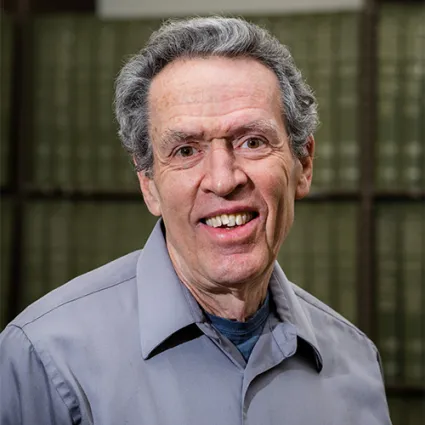Neal Salisbury
Barbara Richmond 1940 Professor Emeritus in the Social Sciences (History)

Contact
Biography
Neal Salisbury is a historian of Native Americans in early modern North America. His research and writing center on Indigenous history as a vital dimension of American history, especially in New England, ca. 1500–1700. He draws on approaches and findings of fellow historians as well as scholars in Native American/Indigenous studies, anthropology, archaeology, imperial and settler colonialisms, and the transnational Atlantic. His work presents Indian history on its own terms, countering those established by colonizers that continue to pervade academic scholarship, popular culture, and political discourse. He is currently preparing a volume of biographical essays on Native and English figures who crossed the cultural divide, thereby illuminating some significant dimensions of colonization in New England.
Salisbury has been awarded fellowships by the Smithsonian Institution, the Newberry Library, the National Endowment for the Humanities, the Charles Warren Center at Harvard, the National Humanities Center, the American Antiquarian Society, and the American Council of Learned Societies. He is a past president of the American Society for Ethnohistory and has served on the Council of the Omohundro Institute of Early American History and Culture. In 2017 he received a Lifetime Achievement Award from the American Society for Ethnohistory and was named an honorary member of the Colonial Society of Massachusetts. He was the Mellon Distinguished Scholar in Residence at the American Antiquarian Society in 2018-19.
Salisbury taught courses on Native Americans, colonial-revolutionary North America, and other topics in American history at Smith from 1973 to 2008 and occasionally thereafter to 2014. He was an adjunct member of the graduate faculty at the University of Massachusetts, Amherst, where he worked with students in the history and anthropology departments. He was a founding member of the Five College Native American and Indigenous Studies Seminar, in which he remains active.
Selected Publications
"Tisquantum, the Red Atlantic, and the Anglo-Wampanoag War," Early American Literature (forthcoming)
“Spiritual Giants, Worldly Empires: Indigenous Peoples and New England to the 1680s,” in The World of Colonial America: An Atlantic Handbook, edited by Ignacio Gallup-Diaz (New York: Routledge, 2017), 153-170.
The Sovereignty and Goodness of God by Mary Rowlandson, with Related Documents, editor. (2nd ed. Boston: Bedford/St. Martin's, 2017).
The People: A History of Native America, with R. David Edmunds and Frederick E. Hoxie (Boston: Cengage, 2007).
A Companion to American Indian History, edited with Philip J. Deloria (Malden, MA: Blackwell, 2002).
“‘I Loved the Place of My Dwelling’: Puritan Missionaries and Native Americans in Seventeenth-Century Southern New England,” in Carla G. Pestana and Sharon V. Salinger (eds.), Inequality in Early America (Hanover: University Press of New England, 1999), 111-133.
"The Indians’ Old World: Native Americans and the Coming of Europeans," William and Mary Quarterly, 3d ser., 53 (July 1996), 435-458.
Manitou and Providence: Indians, Europeans, and the Making of New England, 1500-1643 (New York: Oxford University Press, 1982).